Kids' stuff.
C omic books in their first great flourishing were a genre of popular fiction in which characters were illustrated wearing gaudy clothes, aimed at a class of people "not given leave to dress themselves. No doubt about it; they were kids' stuff." (last bit's from Chabon's Kavalier and Klay... apologies if I've misremembered it). In their current great flourishing we need scholars to explain them, even though they have not changed much.
Salon.com presents an excerpt from Douglas Wolk's Reading Comics: How Graphic Novels Work and What They Mean. to be published by Da Capo Press on July 2, 2007.
Comics fans, grow up!-June 23.
"With the rise of the graphic novel, comics have hit the big time. It's time for fans to quit whining and celebrate their favorite art... "
Where is he headed? An 'art' has 'fans'? (I'd like to buy an art please, said Dr Zoidberg when he came into some money).
"The blessing and curse of comics as a medium is that there is such a thing as "comics culture." The core audience of comics is really into them: we know that Wednesdays are the day when new issues appear in the stores, we populate endless Web sites and message boards..."
Looks like it will be a thorough history of the comic book genre, which does have 'fans', and I'm writhing in embarrassment at the thought that somebody might think i'm one of them.
"Over the last half century, comics culture has developed as an insular, self-feeding, self-loathing, self-defeating fly-trap. A lot of the people who hit their local comics store every Wednesday think of comics readers as some kind of secret, embattled fellowship..."
'Secret embattled fellowship' expresses it better than my 'loose-knit society of fellow travellers' of june 9. Wolk's phrase, with its hint of more desperation, would have suited my enquiry better, and supported my conception of it as a 'genre allegiance', a modern mindset that we recognize but would need a psychiatrist or sociologist to explain to us. Commentary on the genre has taken a sad turn of late. Paul Gravett's books have been giving me the same disquiteing feeling. In fact, hasn't wee Paul already covered all this, him and everybody else who has made a semantic mud puddle and then cheerfully stepped in it (like my commenter (hi, Steve) of June 15 who wound up arguing about the definition of the word 'definition' and who will probably be back for another serve at the end of this):
"But the "novel" part of "graphic novel" blots out the idea of short fiction and nonfiction -- it's odd to call, say, books of reportage in cartoon form by Joe Sacco ..."Graphic narrative" sounds like a euphemism twice removed from its source, and still has the unfortunate resonance of "graphic" with the way it tends to be paired with "sexuality" or "violence." And "sequential art" sounds utterly arid."
I've always thought that to describe comicbook culture beginning with its 'fan' roots would be the honest thing to do, as opposed to the other approach, in which aspects of ancient art (eg. the Bayeux tapestry) are cunningly and dishonestly 'colonized'. However I would have drawn the line at offering it to the world at large for fear of looking foolish, and not only because of our tedious arguing about the naming of things. The triumph of this geeky subculture in the big world can only presage the downfall of good taste. Oh, what am I blathering about; that got fucked a long time ago.
******
If you're still with me, here's another cover: My best ever party trick was making issue 50 coincide with the new millenium; I gave Mick Evans the painted figure and the little sketch and he made a lovely design of it even though he still argues to this day that the millenium wasn't until the following year. Here's my four pager about millenium night, from After the Snooter
My best ever party trick was making issue 50 coincide with the new millenium; I gave Mick Evans the painted figure and the little sketch and he made a lovely design of it even though he still argues to this day that the millenium wasn't until the following year. Here's my four pager about millenium night, from After the Snooter
********
in other news: (the catholic boy in me couldn't less this one go by)
The Vatican issued a document listing its rules of the road, including one warning against using cars "as a means for outshining other people and arousing a feeling of envy."
"Unless having fun has become a sin, I don't believe it (to be wrong)," Amedeo Felisa told Reuters this week at an event celebrating Ferrari's 60th anniversary in its hometown southeast of Milan.
Labels: Bacchus 2, comics crit 1, covers-2
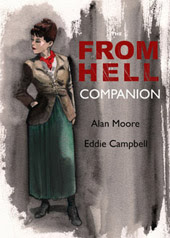
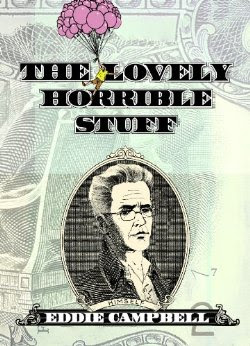

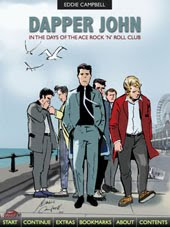
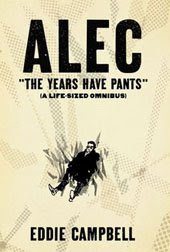
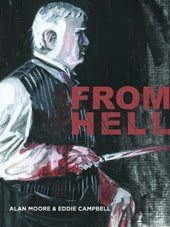
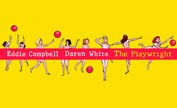
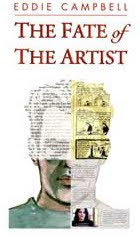
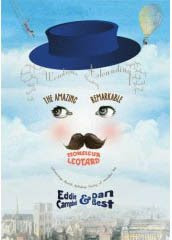

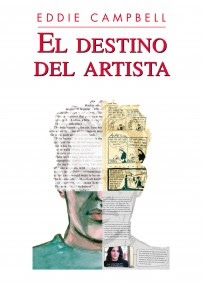
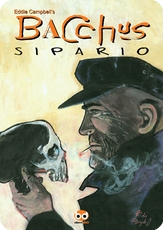
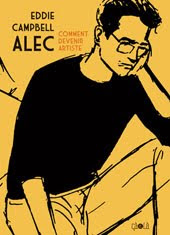

33 Comments:
"I'm writhing in embarrassment at the thought that somebody might think i'm one of them."
Wait. I'm confused. What do you mean by this? I would assume that you are a comic book fan.
like my commenter (hi, Steve) of June 15 who wound up arguing about the definition of the word 'definition' and who will probably be back for another serve at the end of this
No doubt, no doubt, although your lack of response to my earlier missive has left me with slightly diminished enthusaism for the game, I fear. Ah, vanity!
I always cause trouble with the kids on their birthdays by explaining that even though they are six, they are now in their seventh year. I was relieved to know I'm no longer in the core audience of comics. For starters, new comics day in the UK is Thursday.
It's funny how we celebrate issue 50, which is only four and a bit years, rather than issue sixty, which is five years. Although I remember feeling odd back when I were a wee lad and all this mattered, with the FF having a big issue with number 296, rather than issue 300.
And with the Bayeaux Tapestry, I think that's argued about by so many historians I figure our lot were just joining the party. Isn't there a school of thought which dictates the Bayeaux Tapestry is not in fact a tapestry. You'd think the clue was in the name. I also remember some scam over the fact that it depicts kebabs, which were invented later, but that's all ancient history to me now. Never did work out how you invent a kebab, or date when it was invented.
I think my favourite recent Pope story was the likening of Michael Eavis driving around Glastonbury in his land rover as being akin to the pope in his popemobile.
http://www.guardian.co.uk/frontpage/story/0,,2109651,00.html
Chris, Campbell's not a comic book fan, he's a fan of a medium which shares typographical similarities.
I'll probably gain a new arsehole for that one, too...
Bayeaux tapestry contains kebabs and that's wrong detailed here, whilst this site records how not only is it not a tapestry, it is also not a scroll. I only post these links because the last one tickled me by noting how an English draughtsman "spent 2 years making an in death study of it". That's dedication. I'll let someone else take a turn now and point out how I've consistently spelt Bayeaux wrong.
"Chris, Campbell's not a comic book fan, he's a fan of a ."
Hmm, sorry mate, but that sounds like a different way to say the same thing, only smartied up a bit. It's not medium which shares typographical similarities, per say.
I'm assuming that the vatican's "rules of the road" are quite different from George Carlin's in Jay and Silent Bob...
Tho he was a Cardinal in Dogma, so who knows...
"that sounds like a different way to say the same thing, only smartied up a bit"
Could well be, there's the rub. Is it a tapestry or an embroidery or a comic? Actually, it were a gag. It's something I recall Mr Campbell once saying, but I'm probably misrepresenting him hideously, hence the being ripped a new arsehole line.
I don't even know what it is that shares typographical similarities, I'm not clear on what a medium is, but I think what's being aimed at is that there exists a certain passion amongst a type of comic book fan for checking the shop every new comic book day and reading up on all those handbooks that get put out and worrying about who would win out of the Hulk and the Thing, even though they are now middle aged, and I think that's a part of fandom I opt out from, and I think Campbell's the same. As I explained to my six year old, if the fight takes place in The Thing's book, The Thing wins. If the fight takes place in the Hulk's book, he wins. And lo and behold, The Hulk turned up in a recent Fantastic Four cartoon, and I asked him who would win, and he picked The Thing, because it was his cartoon.
This stuff is all mythology, and it's showing the kids the mythology of it all that's the fun. Still, I rambled too long about nothing of importance.
And I went looking for that typographical quote but couldn't see it anymore. Did find this one though, and can't resist pasting it here:
The esteemed Mr Campbell is mentioning he was in an exhibition in Mayfair, and that "some of those small press people had punky political notions and if I said it was Mayfair they'd say it's not Mayfair and they'd have a map out trying to find the boundary of Mayfair, convincing themselves they weren't being tainted by contact with the upper classes."
It was ever thus...and I'm sure I ain't going to be sitting down for a long time now, that's two new arseholes coming. I promise that the beers are on me.
Thanks for the shout-out, Eddie! N.b. I didn't write the headline or subhed... and there's a bit that's not in the excerpt where I attempt to dispatch the Bayeux Tapestry-type origin-seeking business, which bugs me too.
Ah Steve, I bet you're a joy to talk to in person. Ya gonna be in San Diego? Don't worry, I'm not the type to rip people new ones, but I do feel them starry-O-types are at an all time low in the for real world. There are alot of good stories in those sooper hero boooks (bucks?) that are worth getting into. Ever read Chuck Austen's stuff. He was run right out of comics for being good... so I guess maybe I do see your point. Hmmm.
"Looks like it will be a thorough history of the comic book genre"
FYI: I read an advance copy of this book a while back, and I'd say maybe 75% of it comprises critical essays on recent graphic novels. I lent the book to a friend, and thus don't have it sitting in front of me, but I recall stuff about Chris Ware, Hope Larson, David B., Chester Brown, Kevin Huizenga, etc. Some older serialized comic book stuff is covered as well, like "The Invisibles," Steve Ditko's career, and (somewhat inexplicably) "Tomb of Dracula."
Anyway, don't be fooled by those two pages posted at Salon.com; the book's definitely not an extended history of comics fandom.
Hey Chris, nah, I'm not going to make it to San Diego, but thanks for the compliment. I'm sure you'd be good to have a natter with too. My fear on the arsehole ripping front is actually from Mr Campbell, although on that count I've been ripped one or two before so I know what I'm in for. I once had the temerity to posit that Monet's Waterlilly masterworks could possibly, if you stretched things far enough, be viewed as being akin to comics, if people really wanted to go crazy. With apologies, I've never read much of Chuck Austen's work. Wikipedia informs me I know him from Alan Moore's Marvel Man, but I stopped reading X-Books about ten years before Austen started writing them. Campbell's Batman book is probably the only superhero book by the big two I bought in the last decade, although I could be wrong. That was bloody good fun, too, and nicely painted. I haven't read it recently enough to be able to offer anything better than that, but I liked the realistic take on Batman and the setting used. Must have a look at that Paul Pope Batman thing too.
Looking at your profile, you not a closet Manic Street Preachers fan? They used to reserve the right to contradict themselves. Good luck with the art, too.
Christopher
no, I'm not a comic book fan. i haven't looked inside one in a couple of years (not counting my own things whose covers I've been showing). If I have a gig i'll do some quick research , like with the Cap America job in '04, but really I have no interest outside of the professional one. There's a bunch of stuff i've read lately that i wouldn't describe as 'comic book' (you'll remember that's an American idiom if you've been paying attention to my blatherings ) and you have to do more than just read to be a 'fan'.
p.s.
Steve
my batman. I have the cover and a long anecdote about that coming over the next couple of days.
ben
"Tomb of Dracula' inexplicably indeed.. now, see, only a 'fan' could possibly think that's worth talking about.
Douglas
Good to hear from you. I guess youre one of those fans.
And I wouldn't want to spoil aybody's pleasure. If i raised a question it was 'How far can we expect the person in the street to accomodate one's fannishness?" (I'm presuming the book aspires to an audience outside the fan market, given the Salon promo, the non-comics publisher, the taking pains to explain terms that the fan would surely take for granted...
I'm mostly stoked that you mentioned Dr Zoidberg. Whee!
Here in the States, the big problem with comic book publishing is the fact that there really aren't any kids' comics anymore. The stands used to be packed with stuff little kids could read--even stuff for little girls. But no more. Gone are the funny animals comics, the big foot comics, the adventure comics, etc. Gone, gone, and gone.
"Every time I think I'm out they pull me back in..."
Okay, this struck me as an odd question:
If i raised a question it was 'How far can we expect the person in the street to accomodate one's fannishness?"
Aside from the obvious stuff that I presume I don't need to defend here (e.g. not censoring stuff), in what way should any person in the street accommodate any interest, enthusiasm, aesthetic taste or anything remotely like that? What would it even mean?
The only answer I can think of is this: we can expect (well, in the normative not empirical sense of the word) intellectual honesty -- not to pass judgment on material one's unfamiliar with, for instance.
Thus, if the person in the street dismisses Wolk's book on the grounds that comics aren't any good or worth paying attention to, the chances are high that it's an intellectually dishonest judgment. If the person has read all (or, generously, a majority) of the works that Wolk discusses, and then makes that judgment, then, fine. Others may disagree. (I don't agree with the old maxim de gustibus non est disputandum (one can't argue about taste) -- as Kant points out, we ourselves don't quite agree with it, since we make judgments about taste in a form that has applicability to others, not just ourselves -- but clearly these are matters about which consensus is unlikely to form).
This is not to say that a person, in the street or anywhere else, has an obligation to be interested in Wolk's book or the material it contains. We all perforce make uninformed judgments about what's worth our time. But it's important (again, for reasons of intellectual honesty) not to confuse those with judgments that are more firmly grounded, i.e. our opinions about books we've read, art we've seen, genres we've read widely in, etc. (That last too is, of course, contested: how widely? is not a question everyone will agree on in every case.)
Thus I personally would never say of Tomb of Dracula that "only a 'fan' could possibly think that's worth talking about" because I haven't read it. Nothing has particularly made me want to -- I've seen no positive reviews from people whose tastes I trust, for instance. (Maybe if and when I read Mr. Wolk's book that will change; maybe not.) But saying that I'm suspicious enough of its quality (based on various external factors) not to want to spend my money or time on it is necessarily a provisional judgment; and not a judgment that seems extendable to say that something's not worth talking about, full stop. For that you have to have read it. (Certainly I don't think that the word "Dracula" is sufficient to dismiss it; anyone who thinks that... probably shares few enough beliefs with me to make the point not worth arguing.)
Of course, I'm an academic, by temperament as well as profession, so that I tend to think that practically everything is worth talking about. But if one substitutes "worth reading" (and obviously not everything is worth reading), the same judgment applies. Yes, it's a paradox: the only person who can justifiably say that something is not worth reading is one who's read it. But what alternative would you suggest?
How far should a person go to accommodate any interest? Only as far as they're interested. But don't confuse one's lack of interest with an aesthetic judgment of any intellectual standing.
Of course some people have been immersed in a cultural arena and then decided that it's not worthwhile -- it seems that our esteemed host Mr. Campbell is in that category with what he calls (misleadingly in my view, but never mind) the "genre" of comics. That's a judgment that is at least based on sufficient evidence. But, as I said, in matters of taste we're unlikely to reach consensus.
I have the sneaking suspicion the implication here is that in other areas a person on the street is obliged to accommodate people's interests -- in, presumably, art that some other person thinks is worthwhile. Well, I simply find such arguments weak at best. It's one thing to say "here is a thing that will give you great pleasure and delight, you should try it": that's very reasonable. It's simply another thing to say "you ought to respect this": the usual claim by any representative of high culture, usually met with the scorn it deserves. I like a lot of things from high culture, and a lot of things from popular culture (and dislike plenty of things in both): but I don't think that the former has any greater a priori claim on other people's respect.
SF
PS: Of course an art has fans: people who have a particular interest in that art. Lots of people are film buffs. My father collects, and follows, and knows a lot about, contemporary art photography. Other people are fans of, well, all sorts of arts. Why not?
I look forward to Wolk's tome, but eddie ha sput it all in perspective for me. I'd rather stick with the xplosion of comics in 1778 London than have to read another diatribe about "genre and how genre made me the genre-cognoscent cognooscenti I am today."
feh, give me Gravett, any day and any way
Ronan the Accuser! (oh dear, now I've blown my non-fan status)
I was wondering what you were up to these days, and now... now i'm none the wiser.
Stephen,
"Mr. Campbell is in that category with what he calls (misleadingly in my view, but never mind) the "genre" of comics. "
Twice or thrice in my piece I linked 'comic books' or 'comic book culture' to the word 'genre'. Wolk may have used 'comics' once but I not at all. Since I have already made a point of underlining the niceties of these terms, i.e. 'comic book' is an American idiom, I'm at a loss to know whether to try to decipher the rest of your commentary. If pursued to its end, all words start to lose their usefulness, 'fan' being the one likely to be the first to go. I must say you have a very odd arguing technique, which consists of first dislocating your opponent's grasp on his mother tongue. And then, while he is disoriented you repeat his words back at him as though they were scales and arpeggios, tossing him upon these waves, darting across the circle of fifths and back again until he hhas lost all sense of tonality. Then you leave him washed up upon a Shoenbergian stave like seaweed on a dike.
If my metaphors seem far fetched that is because I can find no raft to hold onto in your turbulence. I' have no idea what your point of view is, except that it is desperate to be other than mine.
Doug, don't worry, I'll buy the copy Ronan was thinking of picking up.
Eddie,
And here I thought I was being so clear!
I would ask that you do try to decipher (!) the rest of my comment, since I spent some time on it. Quite frankly, the sentence you have plucked out of it could be changed to "....the 'genre' of comic books" without any change in the meaning of the rest. If I misrepresented your views, or muddied an issue you thought important, than I apologize. But it was really not a phrase that was loaded with that much significance for me.
I must say you have a very odd arguing technique, which consists of first dislocating your opponent's grasp on his mother tongue
'Tis not my intent. Perhaps we are divided by a common language (to borrow Twain's famous quip). But I think if you just grant me the use of "comics" to mean -- roughly -- "sequential art", which is hardly an uncommon use these days (however much you might dislike it's etymological twists), then I *think* the rest should be clear. (Is there another word we use that differently? The only two candidates that come to mind are "fan" and "definition". For the former, I find it roughly synonymous with the word "enthusiast" (or "buff" as in "film buff"); this in its general sense -- I recognize that there is a specific "fan" culture associated with fans of comic books, and that the word can be used as short-hand for that, too. For the latter, the only difference is that I think that definitions can be (indeed, usually are), provisional, e.g. "for the purposes of this discussion, let us define x as...". This strikes me as honest to the way the word is used, frequently if not universally. All clear?)
I' have no idea what your point of view is, except that it is desperate to be other than mine.
On the contrary: I started this dialogue (one which I should say I've enjoyed, from my end) , lo these many posts ago, very much thinking and hoping that we'd find quick common ground. I've come to think that we won't, although I certainly would like to. I guess I'd say I'm no longer desperate to find common ground with you, but I would still be nothing less than delighted to do so.
My sense of our disagreement -- which perhaps I'm wrong about! -- is that the heart of it is that I find the use of the word "comics" -- divorced, yes, from its etymological roots -- to be the name of a medium to be both accurate and useful, and that you find it to be neither. Yes?
I think a related disagreement -- I could be wrong about this, but I've started to get this sense -- is that I find the recent (last few decades) collapse of the divisions between high and low culture (including the eroding of the automatic prestige of the former and the automatic disrepute of the latter) to be a positive thing, whereas I think that you find it to be a negative thing. Am I right?
Finally, I think that we may disagree about the culture of comic books: you (if I interpret you correctly) have come to dislike it, and think that its products are of little or no aesthetic worth and deserving of no attention from those outside its scope; whereas I like it, and think that there are some products arising from it that *are* of aesthetic worth and (therefore) *do* deserve attention from those outside its scope. I would readily grant that the ratio of good to bad works is small, but would also say that that is probably true in most fields of artistic endeavor, whether of high culture, low culture, or any other origins.
... That's the best I can do at stating what seem to me to be our points of disagreement. I would love to have you correct me about your views where I have got them wrong. And, yes, I'd love to try to come to common ground. As you have no doubt figured out, I tend to take these things far too seriously, but, given that, I do take them seriously and would like to continue the discussion if you're game.
Respectfully,
Stephen
PS: I quite loved your metaphors, actually, even if I didn't think them applicable...
Hey, Stephen.
Forgive the size tens wading in here, but up above you're talking about comic books and you say that you think that there are some products arising from it that *are* of aesthetic worth and (therefore) *do* deserve attention from those outside its scope.
When you say products, do you mean stories? It strikes me we wouldn't go and see The Big Sleep at the cinema and say "what a great product, ranks up there with other great products". Or do you literally mean that some comic books are of some worth merely as cultural knick knacks, like old Bakelite phones and all of that, maybe those comic books with the checkers and the gorillas. I admit I'm out of my depth here, but half of that may be that you're running shy of calling a spade a spade.
Hey, Hemlockman.
Big foot comics?
I musta missed them.
Hemlock,
I meant stories, art, poetic language -- it was meant to be a general term that covered, well, anything that the culture *produces*. It's awkward, but it was the result of an attempt to speak broadly.
But no, I don't mean cultural knick-knacks -- an area in which I have no interest whatsoever. I mean, mostly, stories.
That wasn't Hemlock, that were me. I guess then, that maybe you're losing a lot on being broad or not calling a spade a spade. It seems to me you might be creating a whole load of differences where there aren't that many, if you'll forgive me the plain talking.
I don't expect Campbell to disagree that good work can get printed in a comic book, although it's possible he will. He's mentioned on here before he has a distinction in his head between stuff like Fate of the Artist and that Batman book, but I figure its fair to say Picasso had a distinction in his head between Guernica and whatever sketch he just drew to pay the restaurant bill.
On the comics and sequential art debate, I ain't stepping into that one, those are raging waters that run deep.
On the comic book fan thing, I think Campbell already identified he meant that bit you say you aren't defining it as, so I think you're arguing for nothing there. Most of us would hope we're standing on the side-lines with where Mr Campbell sees himself, even if we all have feet either nearer the stage, the orchestra pit, the stalls or the peanut gallery.
With the bit on how the walls have all collapsed on what good taste is, yeah, that's the area I can't work out where Campbell sits either. I'm cutting him some slack and reckoning on that he's allowing some of us people the ability to like stuff if we're honest in our heart and know that just liking it doesn't actually impart actual critical worth, and the ability to like stuff and defend it when we reckon on it being defendable.
I mean, I like Usagi Yojimbo, but that's just a fun romp through Japan with Stan Sakai, I ain't going to pretend that's on a par with Gilberto's Palomar strips, for arguments sake. Although I will defend my right to argue the toss over Doom Patrol, even if I ain't got the fancy pants to be able to stand up and talk about how "Morrison uses the book to homage the two idioms from which the comic book sprang; the art world of the early twentieth century and the emergence of a popular culture defined by mass media". I know what Morrison was doing there, and I know what Sakai is doing, and I don't get where Campbell gets off telling me I can't know that, or that my knowledge of that isn't important, so I reckon he isn't. I await correction though.
Of course, the beers are still on me.
That wasn't Hemlock, that were me
Ooops. My bad.
...but I'll hold off agreeing or disagreeing about what our Esteemed Host would say, particularly since he seems to think I'm misunderstanding him. I'd like to hear it from him directly, if he's so inclined. (If you want to speak in your own name, I'd be glad to argue (or agree or whatever); it's just that I don't want to try and guess what EC would say. Fair?)
I thought I was already speaking in my own name. My apologies for not having done that, to both you and to Mr Campbell. I'll get me coat.
This comment has been removed by the author.
This comment has been removed by the author.
Eddie Campbell said...
Eddie Campbell said...
bunch of posts while I was writing this.
of course, you realize that I've put all my blog time into this response and today's official post may not end up being very impressive. It all your fault.
okay---
stephen said...
“Thus, if the person in the street dismisses Wolk's book on the grounds that comics aren't any good or worth paying attention to, the chances are high that it's an intellectually dishonest judgment. If the person has read all (or, generously, a majority) of the works that Wolk discusses, and then makes that judgment, then, fine.”
You seem to me to be going over the same thing in this first post as though with lawn mower hoping to catch those stray baldes you missed on the first sweep. Simply, I’ve wrestled with the problems of presenting ‘comic book culture’ or ‘the graphic novel’ to the world at large for long enough to have constructed a theory of what are the best ways to proceed. It is my conviction that revealing fandom in all its nerdiness is not the way to go. To write within fandom and not realize that the person in the street doesn’t know what a long box is, or a mylar bag, (Just for example off the top of my head. I’m not saying that Douglas did this) and that if you use these terms you might as well be talking Russian. That’s all I was saying. Disagree with me by all means, but tell me why, clearly and simply.
“Tomb of Dracula that "only a 'fan' could possibly think that's worth talking about"
In taking comic books out of fan culture we need to differentiate between the stuff we liked that we grew up with and stuff of actual value (as Steve touched on above). A diehard fan usually has trouble doing that.
“But I think if you just grant me the use of "comics" to mean -- roughly -- "sequential art", “
well I know that’s what YOU mean, but if you’re quoting me you should have allowed for the fact that I mean something else by the term and therefore substituted another word. That’s why I pulled you up for supplanting your use of ‘comics’ for my use of ‘comic book’ when you quoted me directly, precisely because I know your meaning is different. I’m not asking you to change your meaning, just take care to express my meaning correctly when quoting me. I also realize that I'm being Humpty Dumpty (see Fate of the Artist). That is a choice.
“which is hardly an uncommon use these days”
But it is not universal which is why I alluded to Wkipedia supporting my contention. Wiki is no authority, but it does reflect popular usage to some extent (that was re. ‘genre’).
“Is there another word we use that differently? The only two candidates that come to mind are "fan" and "definition"”
Fan is a very idiomatic word. Baseball heroes have fans. Rockstars have fans. I do not have fans, I have readers. The Guggenheim has patrons, modern art has art lovers, cinema has film buffs, soccer teams have supporters. God has worshippers, his church has congregations. Remember that ‘fan’ is a humorously colloquial shortening of ‘fanatic’. The comic book, sci fi etc. worlds have for a long time been pleased to identify themselves as ‘fandoms’.
Definition includes within it ‘finite’, it marks limits, it is a clear line. It separates and resolves disagreement. When I said ‘not a definition but a description’, you used a semantic sleight of hand to make them mean the same just so you could continue arguing. If I described a woman as beautiful, you may or may not agree, but you would regard it as pointless to argue with me. No? If I defined what the rules of beauty are going to be from now on, you would probably say ‘hold on old chum, that’s not for you to say.’ Yes?
“My sense of our disagreement -- which perhaps I'm wrong about! -- is that the heart of it is that I find the use of the word "comics" -- divorced, yes, from its etymological roots -- to be the name of a medium to be both accurate and useful, and that you find it to be neither. Yes?"
I find that it leads to misinterpretation, as I have illustrated elsewhere (an essay in a comics journal in 2004 for example). But those who juggle with the term do not care as they have no interest in the past or in correctly understanding it. I’m not saying they should, but in pretending to address it they blithely parade their ignorance.
“I think a related disagreement -- I could be wrong about this, but I've started to get this sense -- is that I find the recent (last few decades) collapse of the divisions between high and low culture (including the eroding of the automatic prestige of the former and the automatic disrepute of the latter) to be a positive thing, whereas I think that you find it to be a negative thing. Am I right?”
I find it to be ugly and chaotic and it has filled the world with the kind of dickheads that parade and posture at the MTV awards every year. Bad taste, bad manners and ignorance have been raised to the level of a cultural badge.
" Finally, I think that we may disagree about the culture of comic books: you (if I interpret you correctly) have come to dislike it, and think that its products are of little or no aesthetic worth and deserving of no attention from those outside its scope; whereas I like it, and think that there are some products arising from it that *are* of aesthetic worth and (therefore) *do* deserve attention from those outside its scope.”
Anything is possible.
Best
Eddie
(deletions and repostings above due to inexplicable formatting problem)
of course, you realize that I've put all my blog time into this response and today's official post may not end up being very impressive. It all your fault.
If you say so.
Simply, I’ve wrestled with the problems of presenting ‘comic book culture’ or ‘the graphic novel’ to the world at large for long enough to have constructed a theory of what are the best ways to proceed.
Fair enough. I think we may disagree about this -- perhaps less than I thought.
It is my conviction that revealing fandom in all its nerdiness is not the way to go. To write within fandom and not realize that the person in the street doesn’t know what a long box is, or a mylar bag, (Just for example off the top of my head. I’m not saying that Douglas did this) and that if you use these terms you might as well be talking Russian. That’s all I was saying.
Well, if that's all that you're saying, then we don't disagree.
Disagree with me by all means, but tell me why, clearly and simply.
If we disagree -- who knows -- my best statement as to why is the lengthy comment I left on this post here, to which you didn't reply. That's the best I can do, at least until I know what you agree or disagree with in that.
“Tomb of Dracula that "only a 'fan' could possibly think that's worth talking about"
In taking comic books out of fan culture we need to differentiate between the stuff we liked that we grew up with and stuff of actual value (as Steve touched on above). A diehard fan usually has trouble doing that.
Again: agreed.
“But I think if you just grant me the use of "comics" to mean -- roughly -- "sequential art", well I know that’s what YOU mean, but if you’re quoting me you should have allowed for the fact that I mean something else by the term and therefore substituted another word. That’s why I pulled you up for supplanting your use of ‘comics’ for my use of ‘comic book’ when you quoted me directly, precisely because I know your meaning is different. I’m not asking you to change your meaning, just take care to express my meaning correctly when quoting me.
I was paraphrasing, not quoting -- but it was a poor paraphrase, for which I apologize. I'll be more careful in the future.
Fan is a very idiomatic word. Baseball heroes have fans. Rockstars have fans. I do not have fans, I have readers. The Guggenheim has patrons, modern art has art lovers, cinema has film buffs, soccer teams have supporters. God has worshippers, his church has congregations. Remember that ‘fan’ is a humorously colloquial shortening of ‘fanatic’. The comic book, sci fi etc. worlds have for a long time been pleased to identify themselves as ‘fandoms’.
I think the word is broadening -- I don't think it's limits are as strict as all that any more. I think that modern art and cinema certainly have fans. I would actually suspect that you do, too. But it's not a word I have much invested in, so I'll concede the point for the sake of argument.
Definition includes within it ‘finite’, it marks limits, it is a clear line. It separates and resolves disagreement.
I think I simply disagree with you. In my experience, as it's actually used, definitions are often ambiguous; they often provoke rather than resolve disagreement.
When I said ‘not a definition but a description’, you used a semantic sleight of hand to make them mean the same just so you could continue arguing.
I didn't take it to be a semantic slight of hand, it was a point I was seriously making, and which was made in good faith. It certainly wasn't made "just so [I] could continue arguing". If you disagree, then fine.
If I described a woman as beautiful, you may or may not agree, but you would regard it as pointless to argue with me. No? If I defined what the rules of beauty are going to be from now on, you would probably say ‘hold on old chum, that’s not for you to say.’ Yes?
Yes, but I don't think that either of these are particularly illuminating examples. There are lots of descriptions that I would contest; lots of people contest descriptions all the time. (People these days are describing (not defining) Bush as a liberal. I would and have argued with them about that.)
The pointlessness of arguing over beauty is an old one -- hence my earlier citation of the ancient maxim to that effect, "de gustibus non est disputandum". I think that there are cases we argue over beauty -- if more likely over art than over people.
As for defining the rules of beauty... well obviously neither you nor anyone else can do that "for now on". But if you defined beauty for the purposes of a particular essay as such-and-such, then I might think it wasn't fruitful, but it certainly wouldn't be an odd move. "For the purposes of this essay, I'll define X as Y" is a very standard thing to say. One might critique the essay by critiquing the definition; or one might accept the definition for the sake of that argument, but not elsewhere.
“My sense of our disagreement -- which perhaps I'm wrong about! -- is that the heart of it is that I find the use of the word "comics" -- divorced, yes, from its etymological roots -- to be the name of a medium to be both accurate and useful, and that you find it to be neither. Yes?"
I find that it leads to misinterpretation, as I have illustrated elsewhere (an essay in a comics journal in 2004 for example). But those who juggle with the term do not care as they have no interest in the past or in correctly understanding it. I’m not saying they should, but in pretending to address it they blithely parade their ignorance.
I don't have that essay of yours; if it's online, I'd gladly read it (or if you'd care to send it to me).
As for my reasons why I think that it actually leads -- certainly in my experience -- to fewer misunderstandings, I again would reference what I wrote in the lengthy comment at the end of this discussion.
I can't address the not caring without having read your essay, I suppose, but again: that's not my experience. (As a professional student of history, I'd certainly deny that I had no interest in the past or in correctly understanding it.)
“I think a related disagreement -- I could be wrong about this, but I've started to get this sense -- is that I find the recent (last few decades) collapse of the divisions between high and low culture (including the eroding of the automatic prestige of the former and the automatic disrepute of the latter) to be a positive thing, whereas I think that you find it to be a negative thing. Am I right?” I find it to be ugly and chaotic and it has filled the world with the kind of dickheads that parade and posture at the MTV awards every year. Bad taste, bad manners and ignorance have been raised to the level of a cultural badge.
Well, then, here I think we do disagree. I've never watched the MTV awards (we don't have a television that gets any channels), but I think that the elimination of the high/low culture barriers has lead to some very good things, and wouldn't blame bad taste or manners, nor ignorance, on it. I suppose you think I'm simply mistaken.
" Finally, I think that we may disagree about the culture of comic books: you (if I interpret you correctly) have come to dislike it, and think that its products are of little or no aesthetic worth and deserving of no attention from those outside its scope; whereas I like it, and think that there are some products arising from it that *are* of aesthetic worth and (therefore) *do* deserve attention from those outside its scope.” Anything is possible.
As to this, I will cite as my witness the narrator of How to Be an Artist, who lists a number of works as having been "a worthwhile phase in the human cultural continuum", and then claim that the following of those works arose (at least in part) from comic book culture: V for Vendetta; Watchmen; Love & Rockets; Cerebus; The New Adventures of Hitler; The Tale of One Bad Rat; Uncle Sam; Hicksville; and From Hell.
And I think that if one simply dismisses comic book culture as a waste of time, then one will more or less inevitably signal to the apocryphal person in the street that these are a waste of time and should not be looked at, even if one doesn't intend to. In fact, I think that nearly every other book on that list would likely be dismissed as not worthy of reading if that point of view was to hold, even those which had a fairly minimal connection to comic book culture.
And I think that'd be a shame.
In fact, while I haven't read Douglas Wolk's book yet, judging solely from Amazon's table of contents looks like the books he discusses and those you list as (paraphrasing) being worth reading in How to Be an Artist overlap in a fair degree. It appears that he has chapters (or half-chapters) on Chester Brown, Will Eisner, Gilbert Hernandez, Jamie Hernandez, Craig Thompson, Alan Moore, Grant Morrison, Dave Sim, Art Spiegelman and Chris Ware.
It'd be a shame if people who thought that the stories that arise from comic book culture was -- and the following is a quote from a comment you left at my blog -- "a cheap shoddy kind of literature" would therefore presume that none of those writers/artists were worth reading.
Whereas nearly everyone understands that there are good and bad films, good and bad novels, and good and paintings. If one sees comics as a medium, then it's a simple deduction that there are good and bad comics too... and then one can start suggesting to someone that hey, here are some good ones. (As I've said before: when I first started reading comics again, the list I found to be one of my best guide to good reading was yours in How to Be an Artist.))
...okay, obviously, way too long. Hope that's clear.
SF
Post a Comment
Subscribe to Post Comments [Atom]
<< Home